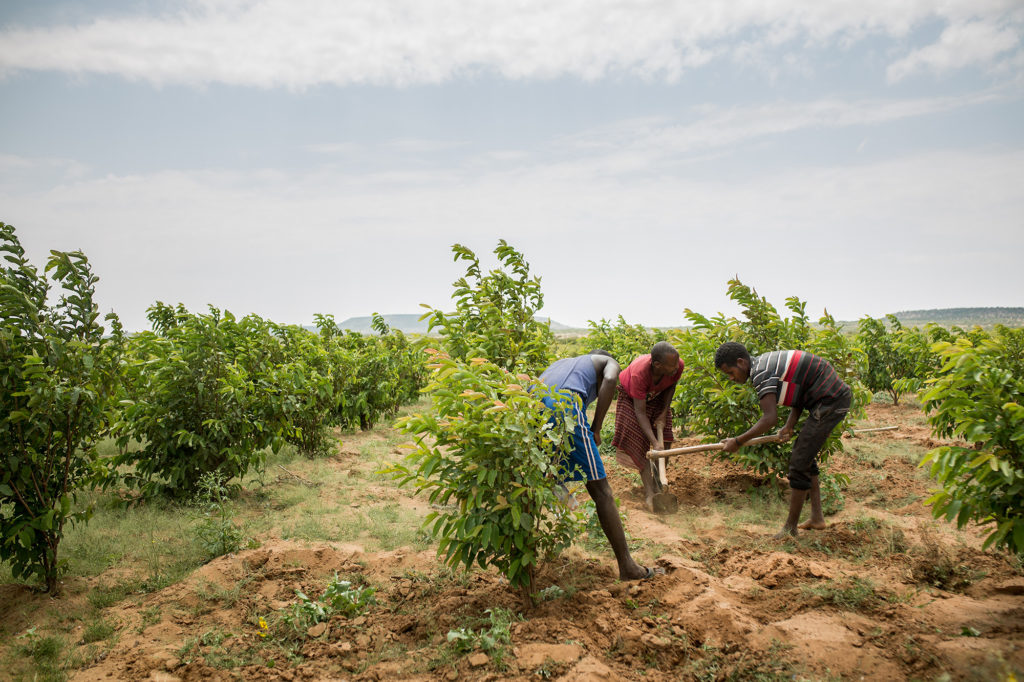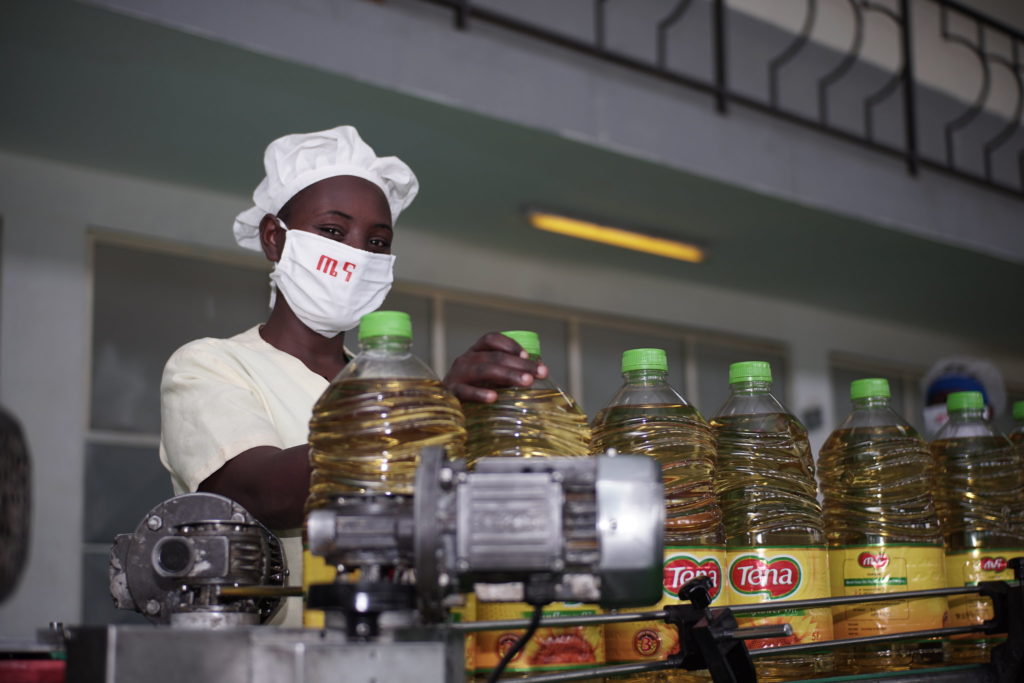The Russian war on Ukraine has had far-reaching consequences, including a shock to global trade that disrupted global food and energy markets. In many developing countries, soaring prices have created a cost of living crisis that threaten to undo years of progress in poverty eradication.

The invasion of Ukraine by Russia on February 24th, 2022 has had implications beyond Europe, impacting businesses in Norfund’s markets as they navigate a new geopolitical landscape and its effects on supply chains and resource availability. This has resulted in soaring food and energy prices, that have remained high in many low- and middle-income countries, even as food commodity prices saw moderations toward the end of 2022.
The market price of some commodities such as wheat, corn, and sunflower, have proven to be particularly volatile as Russia and Ukraine combined accounted for a significant share of global exports. Additionally, Russia and Belarus are major producers of urea, phosphate, and potash, which are key nutrients in fertilizers. The fertilizer trade was already hit by supply chain disruptions stemming from COVID-19. Soaring energy prices, international sanctions, and disruptions to Black Sea trade routes further amplified uncertainties and sent prices to record levels.
The increase in food prices has particularly impacted poor and middle-income households in developing countries, where a significant portion of income is spent on food. According to UN statistics, compared to pre-pandemic projections, there are now an estimated 75 million more people living in extreme poverty. The World Bank estimates that, given current trends, nearly 7% of the world’s population— will still be living on less than $2.15 a day in 2030. In Africa, more than a quarter of the population live in countries that saw more than 20% increase in food prices in 2022.
Even though food commodity prices eased somewhat towards the end of 2022, the negative spiral of inflation and increasing cost of living will take longer to overcome. Rising inflation has exacerbated the reversal of global poverty which happened during the COVID-19 pandemic. At the same time interest rates are increasing globally, which will put additional stress on governments in low-income countries, where according to the IMF, 53% of countries are in debt distress, or at high risk of debt distress, a doubling since 2015. Rising debt-service payments will further limit these countries ability to tackle increasing poverty rates.
Need for countercyclical investors
Developing countries are often more susceptible to global market shocks due to limited diversification and financial resilience. A combination of a difficult business environment and increased interest rates have led to investments in developing countries stalling again, despite an initial hope for recovery post-pandemic. According to UNCTAD growth prospects remain gloomy for most developing countries.
Norfund and other Development Finance Institutions (DFIs) can play a critical role in being countercyclical and deploying capital in the most challenging markets. In 2022, Norfund demonstrated this through increasing the fund’s investments by over 20% to a record high 6.5 billion NOK, almost 2.5 times the total amount transferred from the Norwegian state development budget.
Ghana, a core country for Norfund, is one example of a country heavily impacted by the cost of living crisis, with inflation reaching unprecedented levels in 2022, ending the year at an official inflation rate of 54.1%, the country’s highest since 2001, after starting the year at an inflation rate of 13.9%. The Real Consumer Price Index (CPI) for most households was observed to be +100%, with food prices being the most affected. This has led to significant increases in the cost of living and overall costs for individuals, businesses, and households, making planning and budgeting challenging. The depreciation of the Ghanaian cedi (GHS) of 39% over the year, with a peak depreciation of 58%, has further compounded the increased costs of living and uncertainties.
In neighboring Nigeria, Norfund portfolio company Sundry Foods has had to adapt to disruptions in their supply chain due to the war in Ukraine. Sundry Foods, a Quick Service Restaurant, Bakery, and Catering Service operating in over 100 branches across Nigeria, has been impacted by the availability of inputs such as wheat, of which Ukraine was a key supplier, and proteins. The company has had to seek alternative sources for these inputs, which has negatively affected its margins, as it does not want to transfer the higher costs to its customers. The company is now sourcing more locally and regionally, which brings about new opportunities, but also challenges.

With crisis comes opportunity
Increased prices on imports also create new opportunities to develop local production and processing at competitive cost levels, creating local jobs and increased income for farmers. Norfund’s investment in Samanu, committed at the end of 2022, is a good example. Through increased local production of edible oil, the goal is to create jobs, increase food security, and provide income for up to 200,000 smallholder farmers.
Policymakers in many of Norfund’s focus countries are now re-evaluating their countries’ resilience due to overdependence on critical imports from a small number of exporters. The volatility of food commodity prices has drawn increased attention to local and regional production, sourcing, and value creation.
The African Free Trade agreement is an example of initiatives that will strengthen regional integration and build more resilient food systems. This will create new opportunities for investment in agricultural value chains with a focus on local sourcing and regional markets, reducing reliance on imported foods that are vulnerable to inflation and exchange rate fluctuations and freeing up hard currency for other areas.
Governments in the most affected countries are also working to implement policies that aim to control inflation, increase agricultural productivity, and provide social safety nets to support vulnerable populations. To succeed, they need to attract commercial investments that allow them to diversify their economy, create jobs, and invest in modern technology that boosts domestic agricultural output and processing. The need for investors like Norfund has thus never been greater.